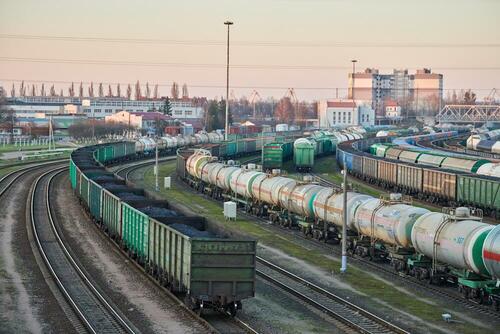(C'est pas le grand remplacement qui se met en place, c'est la grande liquidation. On peut penser que cela n'arrivera pas, on peut l'espérer, mais là, on joue à pile ou face avec une pièce truquée. note de rené)
EU Walks Back Hard Line On Kaliningrad Standoff As Russia Places New Missiles On Baltic Coast
Following Moscow threatening to retaliate and escalate, it seems the European Union is seeking to rapidly defuse tensions after earlier in June giving Lithuania the go-ahead to block all rail and road transit of Russian goods going to Russia's exclave of Kaliningrad. Some one million Russian citizens of Kaliningrad Oblast have been cut off from normal and vital reception of goods through neighboring EU-NATO member Lithuania since June 17 due to enforcement of EU sanctions against Moscow.
But Reuters is reporting Wednesday that Brussels is ready to climb down quickly from its hard line sanctions enforcement stance, after last week the Kremlin warned Lithuania that "Russia will certainly respond to such hostile actions." A statement from Nikolai Patrushev, the Secretary-General of Russia's Security Council, at the time threatened: "The consequences will have a serious negative impact on the population of Lithuania." But now EU leaders are said to be seeking compromise.

The EU is now talking sanctions exemptions rather than enforcing them over an area that will only ensure escalation with Moscow.
European officials are in talks to exempt the area from sanctions that have so far hit industrial goods like steel and pave the way for a deal in early July if EU member Lithuania drops its reservations, the people who refused said Not to be credited because the discussions are private.
This despite all the talk of a unified front and "resolve" to not only enforce existing anti-Russia sanctions but ramp up further punitive measures over the Ukraine invasion at both the G7 and NATO summits held this week.
Russia has said it would for the time being ferry goods across the Baltic Sea to its territory of Kaliningrad. At the same time, Russia's military nearer to the start of the Kaliningrad 'blockade' initiated missile exercises in the Baltic Sea, which featured anti-ship missile 'live fire' against targets. The Defense Ministry even publicized and promoted footage of the threatening drills.
And more crucially, there are emerging reports of further fresh Russian missile deployments to Kaliningrad's Baltic Sea coast. "Analysis of satellite imagery shows that Russia has now positioned advanced anti-ship missiles on the Kaliningrad coast," a fresh report in the global maritime monitoring site Naval News finds. "The systems are deployed to the Mys Taran headland, a prominent landmark mid-way along the exclave’s short coastline." According to details in the report:
The missile systems are two types which are often deployed together. The first, 3K60 Bal system (NATO: SSC-6 Sennight), is loosely equivalent to the Harpoon. It shoots the Kh-35 missile, known by the NATO reporting name SS-N-25 Switchblade. This is the same missile that Ukraine’s Neptune system is based on. Each Bal TEL (transporter erector launcher, read ‘launch truck’) can carry 8 missiles. This is more than most other comparable coastal defense systems.
Bal has an effective range of around 70 nautical miles, with an improved version increasing this to 160 nautical miles.
The recent drills have given way to fears that Russia could exercises a 'military option' if overland goods to Kaliningrad, which is sandwiched on two sides by NATO states, continue to be blocked, per the Reuters report:
If the traditional route for Russian goods to Kaliningrad, first via allied Belarus and then Lithuania, is not restored, the Baltic state fears Moscow could use military force to plow a land corridor through its territory, the person said.
Germany, meanwhile, has troops stationed in Lithuania and could be drawn into a confrontation with its NATO allies if that were to happen.
Moscow has also in the recent past not hesitated to position short-range Iskander missiles in its Kaliningrad exclave.
Meanwhile, there are some surprisingly blunt admissions coming out of Western officials over the Kaliningrad crisis, such as the following in Reuters:
"We have to face reality," said one person with direct knowledge of the EU discussions, calling Kaliningrad "sacred" for Moscow.
"(Putin) has a lot more influence than we do. It’s in our interest to find a compromise," he said, acknowledging that the eventual result might seem unfair.
Some of the particular forms of compromise could involve freight traffic being exempted on the basis that it wouldn't count as "international" trade according to the 'letter' of EU sanctions policy (given the exclave is already Russia's), or issuing waivers on a "humanitarian" basis; however, Lithuania appears in a mood to "stand up" to Russia and not make significant concessions.
Given the Russian escalation and possible missile build-up in the Baltic region, it is looking like goods could flow normatively to Kaliningrad within a few days, according to officials cited in Reuters.
Aucun commentaire:
Enregistrer un commentaire